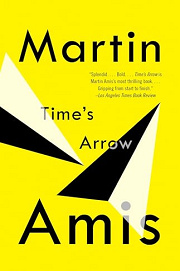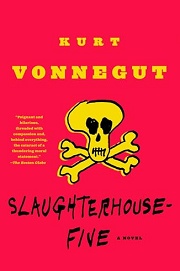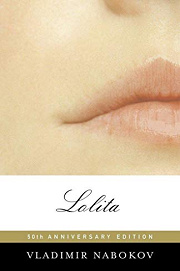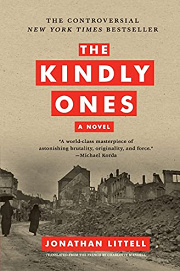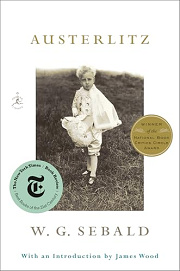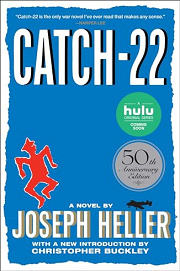Share your thoughts in a quick Shelf Talk!
Time's Arrow by Martin Amis
Time flows backward for a man whose life is revealed in reverse—pain becomes healing, loss becomes reunion, and every moment is a puzzle of meaning. With razor-sharp prose and a haunting premise, Time's Arrow turns memory and morality inside out, inviting you to re-experience a life as it unspools toward its mysterious beginning.
Have you read this book? Share what you liked (or didn’t), and we’ll use your answers to recommend your next favorite read!
Love Time's Arrow but not sure what to read next?
These picks are popular with readers who enjoyed this book. Complete a quick Shelf Talk to get recommendations made just for you! Warning: possible spoilers for Time's Arrow below.
In Time's Arrow, did you enjoy ...
... war trauma rendered through fractured time and causality?
Slaughterhouse-Five by Kurt Vonnegut
If the reverse chronology of Tod Friendly’s life—where Auschwitz seems to "create" people and a kiss reads like assault—gripped you, you’ll be drawn to the way Slaughterhouse-Five snaps Billy Pilgrim loose from time. Watching him ricochet between Dresden, the VA hospital, and Tralfamadore scratches the same itch: a non-linear design that turns atrocity into a puzzle of perception, asking you to rebuild cause and effect in your head.
... a seductive, self-justifying voice you must read against?
Lolita by Vladimir Nabokov
You parsed the gaps and euphemisms of the narrator riding inside Tod Friendly—misreading cruelty as kindness—so you’ll appreciate Humbert Humbert’s dazzling deceit in Lolita. As he narrates his pursuit of Dolores Haze, the prose tries to charm you into complicity, and the pleasure is in resisting, catching the telltale slippages the way you caught the backward "mercy" of a doctor who heals by harming.
... inhabiting the mind of a Nazi perpetrator without moral handrails?
The Kindly Ones by Jonathan Littell
If living inside Tod Friendly’s skin while his past in the camps slowly surfaced compelled you, The Kindly Ones puts you in even closer quarters with SS officer Maximilien Aue. The narrative refuses distance or exoneration, detailing selections, massacres, and bureaucratic evil with the same unnerving intimacy that made Time’s Arrow’s backward life so disturbing.
... meditations on memory, guilt, and the afterimage of the Holocaust?
Austerlitz by W. G. Sebald
If the moral inquiry behind Tod Friendly’s reversed life—turning history inside out to examine complicity—stayed with you, Austerlitz pursues that inquiry forward in time. Through Jacques Austerlitz’s search for his past after the Kindertransport, Sebald unspools questions of identity, erasure, and historical memory with the quiet gravity that echoes the philosophical core of Time’s Arrow.
... morbid, absurdist comedy sharpened against wartime brutality?
Catch-22 by Joseph Heller
If the queasy laughs in Time’s Arrow—like the narrator’s upbeat misreadings of violence—worked for you, Catch-22 wields the same pitch-black wit. Yossarian’s battles with Colonel Cathcart’s logic, dead men in tents, and the hospital’s grotesque farce turn institutionalized cruelty into comedy that makes you wince, then think.
Unlock your personalized book recommendations! Just take a quick Shelf Talk for Time's Arrow by Martin Amis. It’s only a few questions and takes less than a minute.
